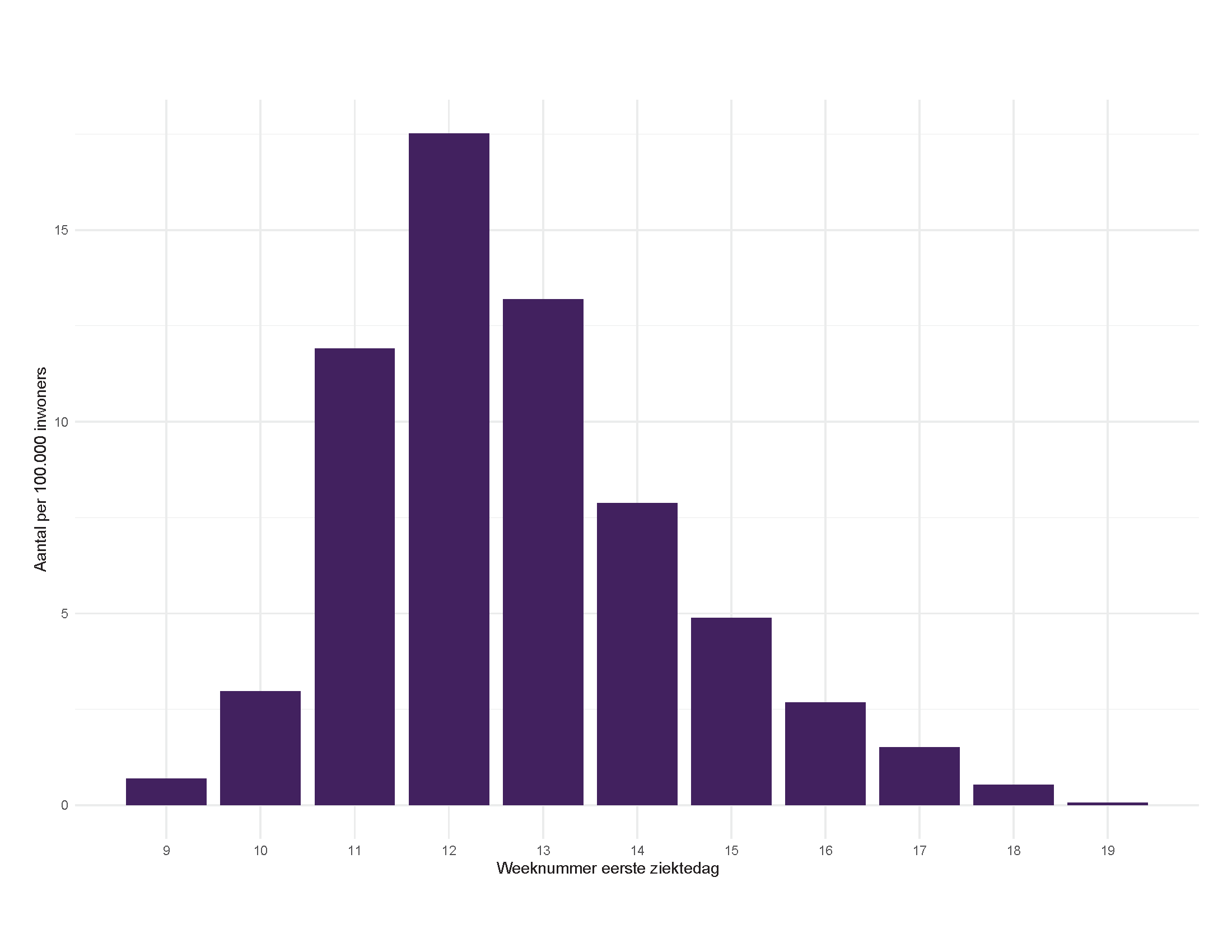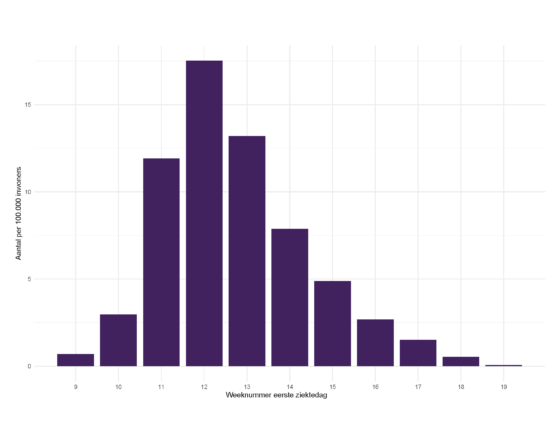Government restrictions are having a clear impact on virus spread: RIVM

 The impact of measures to combat the spread of coronavirus in the Netherlands can be clearly seen in a week by week analysis of when people became ill, according to research by the public health institute RIVM.
The impact of measures to combat the spread of coronavirus in the Netherlands can be clearly seen in a week by week analysis of when people became ill, according to research by the public health institute RIVM.
Although hygiene guidelines and a recommendation to avoid busy places were introduced early March, the first specific national measures were introduced on March 12. Then, the government said people should work from home, stay home if they have mild symptoms and that events were being cancelled. On March 15, schools, cafes and restaurants and sports clubs were closed.
The highest number of registered patients was in the week from March 16 to 22. From March 23, two weeks after the first restrictions were brought in, the number of hospital admissions starts to decline.
This same pattern is apparent across every province, even those with very few cases, the RIVM said.
Meanwhile, the official death toll from coronavirus in the Netherlands has risen by 84 to 5,288. Not all the deaths took place in the past 24 hours. The number of hospital admissions rose by 39, taking the total to 11,192.
A further 455 people have tested positive for coronavirus, meaning nearly 42,000 people have had an official diagnosis. The true spread is likely to be far higher because testing has been restricted to certain groups, including healthcare workers and teachers, as well as people with serious symptoms.
Thank you for donating to DutchNews.nl.
We could not provide the Dutch News service, and keep it free of charge, without the generous support of our readers. Your donations allow us to report on issues you tell us matter, and provide you with a summary of the most important Dutch news each day.
Make a donation